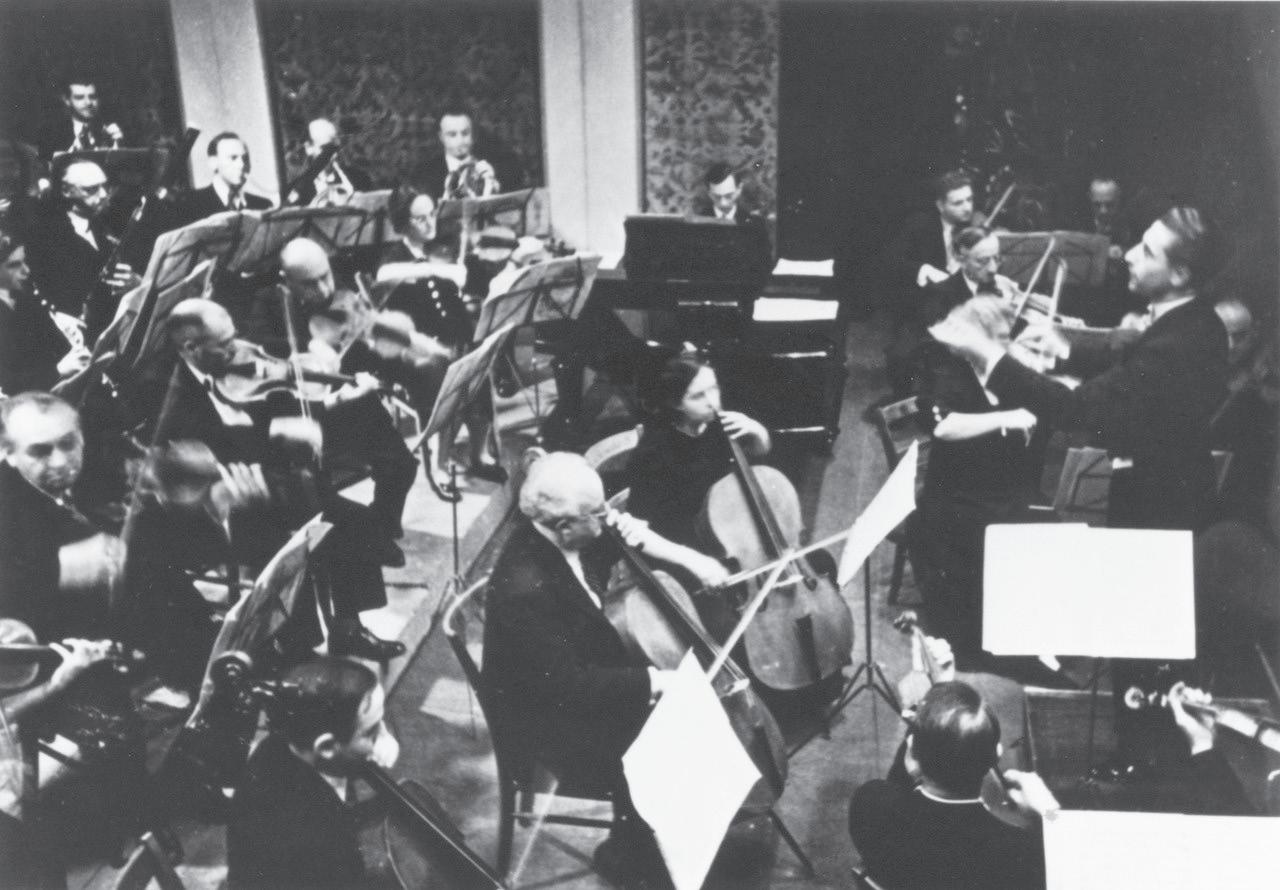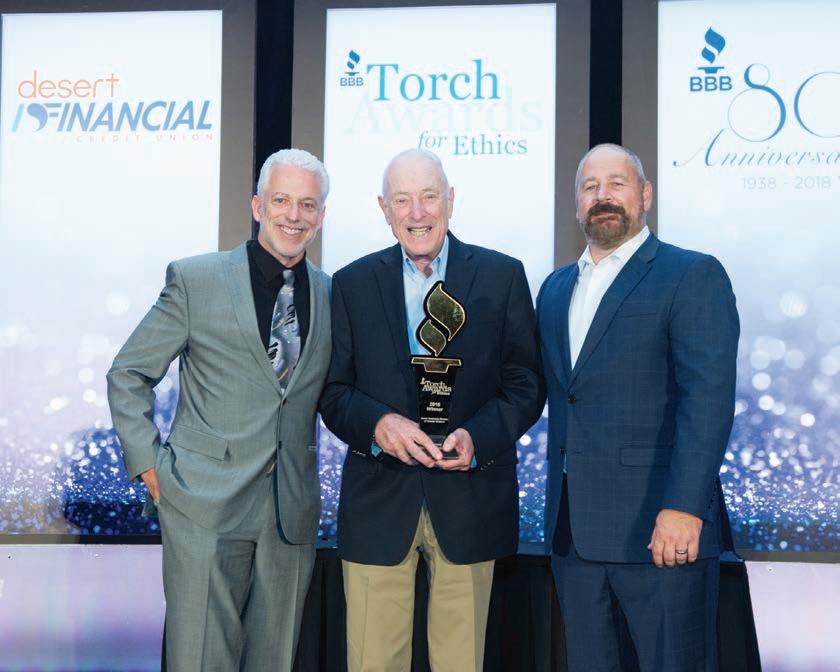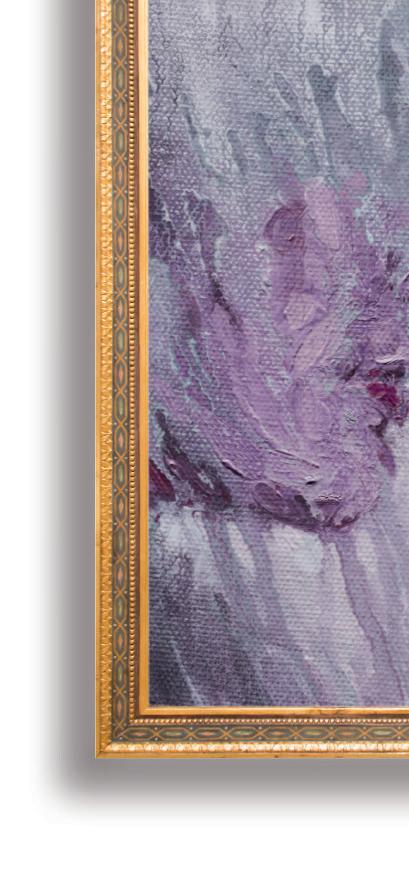
6 minute read
A night celebrating the ‘inextinguishable’ nature of a symphony
MALA BLOMQUIST | MANAGING EDITOR
On Jan. 22, MusicaNova Orchestra is teaming up with the ASU Center for Jewish Studies, with support by a grant from the Center for Jewish Philanthropy of Greater Phoenix, to present “Winter Journey and the Inextinguishable Symphony” at the Scottsdale Center for the Performing Arts. The evening features the little-known history of Jewish musicians in 1930s Germany through a unique presentation of music and film.
Advertisement
Carl Nielsen’s “Inextinguishable Symphony” is preceded by a screening of the 2019 film by Danish filmmaker Anders Ostergaard, “Winter Journey.” The film, based on Martin Goldsmith's book, “The Inextinguishable Symphony: A True Story of Music and Love in Nazi Germany,” tells the story of his parents who played in the Jüdische Kulturbund, (Jewish Cultural Association), an ensemble sanctioned by the Nazis that served as a propaganda tool, employing Jewish artists who had been fired from their previous positions.
Goldsmith is director of classical music programming at SiriusXM Satellite Radio in Washington, D.C. and formerly the host of “Performance Today,” National
SENIORS
FATHER CONTINUED FROM PAGE 13 trained to cure. However, with a serious illness, aggressive treatment at the end of life can be harder on the patient than the disease itself. Dad had hit that tipping point and said in no uncertain terms, “I never want to go back to the hospital again.”
Noodles had a very clear understanding of hospice. His exposure to hospice was directly related to having a son in the senior care space. Noodles was charismatic and so lovable; there were many “take your dad to work” opportunities, and thus special moments to learn about topics such as hospice in depth. When his primary care physician initiated the conversation, it did not elicit misperceptions of what hospice is all about. Unfortunately, most people associate hospice only with dying — instead of living more fully during the time that remains. Noodles was ready to go from curative care to comfort care.
One of the biggest misperceptions is that hospice care becomes the last resort when “nothing else can be done.” Hospice care doesn’t mean that treatment stops. It means the types of treatment and goals of care change to things like on hand for a Q&A with the audience.

Nielsen, a Danish composer, wrote his Symphony No. 4 in 1916, during the First World War. At the beginning of the score he wrote, “Music is life, and like it, managing pain and other symptoms while helping patients reach their goals in the time that’s left. The most common statement made by families who chose hospice for their loved one is, “We wish we had known about it or made the decision to go on hospice sooner.”
Another misperception is that hospice is a place. Hospice is not a place; it is a concept and that concept is centered around comfort. Over 98% of hospice is delivered in the home. It’s where most people want to be and it is a place where people are comfortable. Receiving care in the comfort of your own home makes perfect sense.
In addition to misperceptions about what hospice can do, the criteria for receiving hospice care can create obstacles.
To be eligible for hospice, the rules of Medicare and most health insurance providers say that doctors must predict a that a patient has six months or less to live. Accurately predicting life expectancy can be a challenge, even for the most skilled physicians.
Another obstacle in engaging hospice is the patient must agree to give up curative treatments. I often see that when the patient is ready to move from curative care to comfort care, their family may influence them to not “give up.” mankind were crazy enough to destroy itself, life would return to the earth in some form or other,” said Goldsmith. “So ultimately the symphony is a very
Warren Cohen, MusicaNova’s artistic director said he has been wanting to do this piece for 40 years. In fact, he was having a conversation about reaching out to Goldsmith when he called MusicaNova suggesting they perform the psychosocial oncology and palliative care at Dana-Farber Cancer Institute in Boston, Massachusetts.
If families or physicians aren’t sure whether hospice care is appropriate, consider getting an assessment from a hospice provider with whom you can discuss your loved one’s condition, the challenges of living with an illness and the benefits of hospice.
I miss you, Dad. Thank you for making the decision to choose comfort. We will cherish the memories we made in the final weeks and days we had together, especially the late-night excursion to get ice cream just a few days before we said our final goodbyes. JN
MusicaNova is celebrating its 20th season in 2023 and it remains “dedicated to bringing new, unjustly neglected and familiar music played in new ways,” according to its mission statement.
“The very first complete concert we did was a concert of music that had been suppressed by the Nazis,” said Cohen. “This concert, and doing this with Martin, is central to the mission of the orchestra because we have done so much music that has been suppressed by the Nazis. Now, in this case, the music was not suppressed by the Nazis, but was directly related to their suppression. It was part of their propaganda Jewish orchestra they had created.”
Cohen explained that, in an attempt to bring art under their control, the Nazis would label any music written by Jews as “degenerate music.” This label was also given to any music with other “degenerate characteristics” such as a relationship to jazz, or to non-heroic presentations of Aryan culture.
“It’s a wonderful thing for us to bring into our 20th anniversary season, because it reflects on the history of the orchestra,” said Cohen.
Goldsmith said he chose the title “The Inextinguishable Symphony” for his book because the Kulturbund orchestra rehearsed Nielsen’s symphony for a performance at the end of 1941.
However, the Nazis disbanded the Kulturbund in September of ’41, so the performance never actually took place.
Growing up, Goldsmith said that his father, George (nee Gunther Goldschmidt), and his mother, Rosemarie, never spoke about the past and when his brother questioned why they didn’t have grandparents or aunts and uncles, like other kids their age, his father’s response was, “They died in the war.”
In 1946, Rosemarie was hired to play the viola in the St. Louis Symphony. George sold furniture in a department store and stopped playing the flute.
“It’s my belief that he gave up his life as a musician as an act of penance,” said Goldsmith. “Because he had failed to save his family. His father, mother, younger brother and sister were all murdered by the Nazis — either in Auschwitz or in a forest outside Riga, Latvia. Even though there is really very little he could have practically done, he felt that he didn’t do enough.”
Rosemarie then played in the Cleveland Orchestra from 1967 to 1981. When the orchestra traveled to perform in Tucson, she found the place she wanted to retire.
“She and my father moved to Tucson in 1981,” said Goldsmith. “My mother died in ’84 and my father stayed there for the next 20 years or so before he developed Alzheimer’s and I brought him back east to stay near me in a facility where he died in 2009, at the age of 95.”


For his book, Goldsmith said he had to do the bulk of research about Kulturbund on his own, although he did have several conversations with his father about the past and those became the bulk of the content of the film, “Winter Journey,” where the late Bruno Ganz plays his father.
“I worked with the director, Anders Ostergaard, and I wrote the script and I appear throughout the film — though never on camera,” he said. “Which I guess is appropriate for a radio guy.”
Goldsmith met Ganz in Tucson during filming in a neighborhood near where his parents lived. He expected Ganz to pull him aside and question him about his father’s habits and mannerisms. Instead, Ganz never asked him a thing.
“He created his character, George Goldsmith, my father, completely out of the script and his own genius and I must say, his performance is just stunning,” said Goldsmith. “There are times when I forget that I’m looking at Bruno Ganz and I think I’m looking at my father.”
The concert will also feature “Finlandia” by composer Jean Sibelius. “It was on the very last program Kulturbund gave before it was dissolved in 1941,” said Goldsmith. “So, there’s a historical connection to the evening and Warren has put together a marvelous choir to accompany his orchestra.”
He added that this program has only been performed once before. In February 2022, the Buffalo Philharmonic Orchestra presented the film, a discussion and Nielsen’s symphony — but not “Finlandia.” “I’m especially looking forward to it because Finlandia is one of my favorite pieces and the fact that it was on the very last Kulturbund program is an added bonus,” said Goldsmith.
“It’s a remarkable opportunity for our community to get in touch with it in a way where you’re seeing the film and also the context of the film — which I think is kind of a wonderful way to pull it all together.”
Goldsmith said that if his father were alive to see the concert he would be overwhelmed.
“He was reticent to talk about the past. So, to see himself on the screen depicted marvelously by Bruno Ganz, not to mention the orchestral connection with Nielsen and Sibelius, I think, for once in his life, he would be rendered speechless.” JN
For more information, visit scottsdale performingarts.org.










